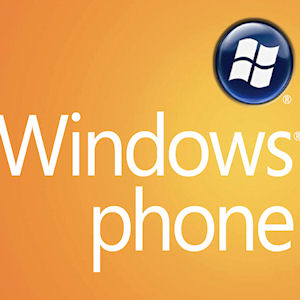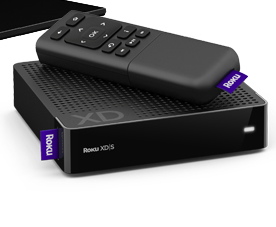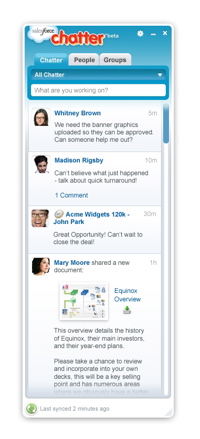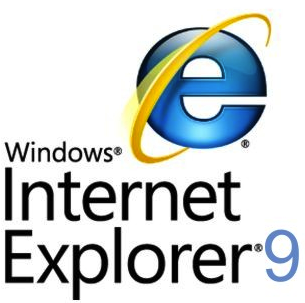
Windows Phone 7 now offers Visual Basic developer tools
In the Windows Team blog today, Brandon Watson announced that the "biggest request from the WP7 developer community" has been answered: the latest community preview of Windows Phone Developer Tools now includes support for Visual Basic.
Unfortunately, there is no word when this will be fully supported, and currently it stands as more of a proof of concept that it is a viable mobile development language. This is because there are a number of limitations involved: there is no "Go Live" license, so any apps that are put together in VB will not be able to be uploaded to the Windows Phone Marketplace; and developers can only make Silverlight apps and not XNA games.

Microsoft Office Web Apps launches embeddable PPT and XL documents, new features, availability
Microsoft's suite of free, browser-based productivity tools called Office Web Apps received a handful of feature upgrades today, which don't act as substitutes for desktop Office functionality, but instead bring Office documents out onto the Web.
As of right now, Office Web Apps users can embed Powerpoint presentations and Excel spreadsheets in blogs and websites via the PowerPoint and Excel mini Web apps. Below, I've embedded Microsoft's example Powerpoint slideshow, which shows the relatively simple process of uploading a .PPT file to SkyDrive, setting permissions, and embedding it. Clicking on the "full screen" icon in the lower right hand corner opens the full version of the PowerPoint Web app, and with appropriate permissions, users can edit the presentation and automatically update it while it's on the Web.

Dell unveils Inspiron One 23, Zino HD, and Dell Stage
Dell rolled out two new PCs on Thursday- the Inspiron One 23 all-in-one, plus a refreshed Inspiron Zino HD home entertainment PC -- along with a new touch interface called Dell Stage which is expected to appear on devices ranging from PCs to smartphones.
Priced starting at $299, the revamped Zino HD is designed to increase multimedia home theater support by adding better processing, memory, and more I/0 ports on the back, including a new SPDIF port and two eSATA ports.

Roku goes all out against AppleTV with new set top boxes
Roku Wednesday introduced its new line of streaming set top boxes, which promise better performance, smaller physical footprint, and lower prices than the previous versions of the popular net TV appliance.
The new lineup includes: Roku HD for $59.99, Roku XD for $79.99, and the Roku XDS for $99.99.

Android sees 5x growth in enterprise, says survey
Market research company ChangeWave today published the results of its latest survey, which focuses on corporate smartphone spending, and the market segment that is the stronghold for Research in Motion's BlackBerry platform.
According to ChangeWave, BlackBerry continues to dominate the enterprise sector, but it dropped three percentage points from the team's last survey in May. The interesting discovery is that Google's Android operating system has jumped up another six percentage points since May, meaning it has grown five-fold since last November.

Microsoft Security Essentials free anti-malware coming to small businesses, too
Microsoft on Wednesday announced it will be making its free Security Essentials product available to small business in a 10-pack of licenses in October. The anti-malware product has thus far been aimed at the consumer market, and has garnered quite a bit of recognition as a high quality free software antivirus.
This new availability is thanks to a change in the software's end user licensing agreement (EULA), which now lets business customers put Security Essentials on individually managed PCs.

Betanews Giveaway: Logitech Harmony One Advanced Universal Remote
Google TV is launching to the public in just a short few weeks after being in development for more than a year. The platform will let users stream video content from Netflix, Amazon Video On Demand, and YouTube, browse the Web with Chrome, search for and organize content, and eventually install Android apps.
The first piece of Google TV-compatible hardware expected to hit the market is Logitech's Revue set top box, which adds a layer of home automation control with its "Harmony Link" Infrared (IR) Blaster capabilities.

Chatter, the enterprise sector's own Facebook, gets significant update
Enterprise customer relationship management (CRM) software leader Salesforce today unveiled a revamped version of its still-new, social media-inspired collaboration tool Chatter, which is expected to come to customers in October.
Salesforce is calling the new version "Chatter 2," and it adds more than a dozen new features to the available version of the product, which is essentially Facebook for enterprise. Even though it has only been available since June, Chatter has already been picked up by more than 20,000 companies, including Dell, Hitachi, Misys and Softbank. So this update is no small affair.

Netflix streaming finally comes to Canada
Netflix Instant streaming, the increasingly popular and ubiquitous subscription movie on demand service has officially launched in Canada after more than three years of availability in the United States. This is the first time the service has been made available outside of the U.S.
Fortunately for Canadian Netflix subscribers, there are already a wealth of devices which will let them watch videos on their TV: iPad, iPhone, iPod Touch, Sony PlayStation3, Nintendo Wii, Samsung and Toshiba connected Blu-ray players, and TiVo.

Microsoft rolls out public preview of Windows Small Business Server 7
Microsoft Tuesday made the first public preview version of Windows Small Business Server 7 (SBS7) available for download. This version of Microsoft's integrated IT suite for small businesses is built upon Windows Server 2008 R2 and includes Exchange Server 2010 SP1, SharePoint Foundation 2010, and Windows Software Update services.
Along with Windows Home Server known as "Vail," which was launched in Beta in mid-August, and the Small Business Server product code named "Aurora," SBS7 is a part of the pack of soon-to-be released, low-cost, low-complexity IT solutions for small enterprises.

Firefox 4 beta loses to IE9 beta in browser speed, efficiency tests
The latest wave of upcoming changes to the world's two most used Web browsers, jointly responsible for easily three-fourths of the Internet's HTTP requests, has nearly everyone in the business rethinking the meaning of "quality" as it pertains to browser architecture. While their arguments start with the usual reminders that folks just want to see their pages load faster, before too long, they wander into dissertations about the methods architects use to achieve the appearance of loading faster. . . especially when they actually don't.
In preparing to test Microsoft's first Internet Explorer 9 public beta, released last week, and Mozilla's public Firefox 4 beta, released late last month, the advice I received most often fell into two departments: 1) Pay more attention to graphics rendering, since new browsers will be spending more time processing Web apps than just displaying pages; 2) start paying attention to how browsers utilize memory and CPU cycles. Since my smarter readers are typically right, that's what I've done in crafting my all-new browser performance test suite.

Study: Windows 7 leading to higher customer PC satisfaction
Consumers are responding positively to Microsoft's Windows 7 operating system, and thus their satisfaction of their PCs has also increased, the most recent edition of the American Customer Satisfaction Index. The effect is being compared to the "halo effect" of Apple's iPod music player, which was thought to have engendered positive feelings about the Mac computer.
Dell's satisfaction score was up three points over last year to a 77, while HP, Acer, and a general "all others" category was up four points also to a 77. The only manufacturer not to see gains was Compaq, which remained at a 74 out of a possible 100. Apple remained on top with a score of 86, which was two points higher than last year. The Cupertino company has led the survey every year since 2004.

Betanews readers offer mixed reactions to IE9
Last week I asked: "Can IE9 bring back Microsoft's glory days?" You answered. As I write, there are 65 comments to the post, and I received dozens of e-mail responses about Internet Explorer 9 beta. Also, as expressed in the more than 160 comments to Ed Oswald's post "IE9 will leave a significant portion of Windows users behind," many of you are miffed the browser doesn't support XP.
In this post, I share your reactions to IE9, the majority from e-mails. This morning, Matt Buono expressed his excitement about the browser, which he described as "fantastic." Dan Locker, an alliance manager with a West Coast Microsoft partner, called IE9 a "huge disappointment." He asked not to be identified because of his work with Microsoft; the name here is pseudonym. Jonah Takalua asserts: "IE9 is quick to start up and runs great so far. I liken it to the browser version of Win 7 with IE8 being Vista."

Microscopic stop-motion film shot entirely with Nokia N8
Though the still-to-be-released Nokia N8 smartphone is modestly specced in the processor department, it is highly overspecced in the camera department. With a 12 Megapixel image sensor, the N8 will join the Sony Ericsson Satio and the Samsung Pixon12 at the highest end of camera phone technology.
Nokia on Tuesday announced that the N8 has been delayed "to ensure a greater user experience," but its powerful camera has yielded some impressive eye candy to whet the appetites of customers in advance of its expected October arrival.

First LTE network, first LTE phone launch in Las Vegas
Samsung Mobile on Tuesday launched the very first LTE phone in the United States, the Samsung Craft. The device celebrates the launch of the very first commercial 4G LTE network with MetroPCS in Las Vegas, Nevada.
In addition to the LTE chips inside, the Craft also has a 1x EV-DO CDMA radio, Wi-Fi/GPS/Bluetooth, a 3.3" AMOLED touchscreen and QWERTY keyboard, a 3.2 Megapixel camera, and a 2GB microSD card with support for cards up to 32GB in size. Similar to the way the Galaxy S Vibrant was pre-loaded with Avatar, the Craft is pre-loaded with a full-length copy of Star Trek on its SD card.